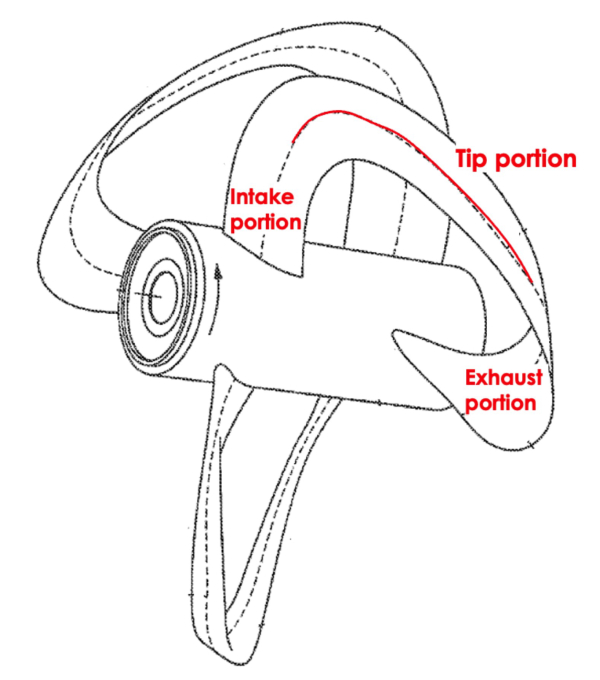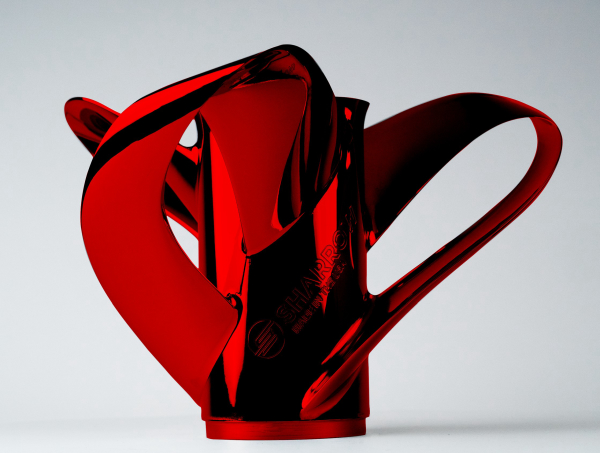
You don’t really expect graduates of music colleges to come up with industry-changing technical developments. That applies particularly in boating and shipping, where tradition and time-tested formulas are relied on to produce dependable propulsion.
But Greg Sharrow, graduate of the Berklee College of Music, in 2012 originated an idea—aimed at developing a quieter mini-drone to record an orchestra for his video productions—that has shaken the world of boating like nothing else since the original propeller took over the industry more than 100 years ago.
Sharrow realized that the blade tips of drone propellers make most of the noise, caused by turbulence. He developed a continuous blade or “toroidal” propeller that worked really well—and soon realized in might work in water as well as in air.
Sharrow Marine was born in 2012, and has taken an amazing grip not only on the water but on the whole industry. Sharrow propellers are now seen on everything from 20-foot pontoon boats to 100-foot diesel engined yachts—and in partnership with other companies, Sharrow is also developing propellers for ships, which are expected to save shipping companies hundreds of thousands per year in fuel costs.
Yamaha liked the propellers so well that in 2022 they inked an agreement with Sharrow to produce Yamaha-branded Sharrow designs in their own factories so they could make them available as OEM gear for their outboards.
In 2024 they teamed with VEEM Industries to produce yacht and ship propellers, including some models for military applications.
And while the stainless steel propellers feature so much precision machine work that the propellers are very expensive—starting at $5995 each for outboards in the 250-300-hp class, and $11,995 for sets of contra-rotating propellers like those used on the awesome 600-hp Mercury—within the last two years they have also started producing aluminum propellers for outboards as small as 40-hp, with prices starting at $1995.

Part of the reason the propellers have caught on so quickly is that on the water testing conducted both by Sharrow engineers and independent sources have repeatedly proven that the huge increases in efficiency with the toroidal propellers can save amazing amounts of fuel, which of course cuts operating expenses dramatically for those who run long distances on regular trips.
Not only that, but greater efficiency means much improved range with the same amount of fuel on board—the ability to travel an extra 100 miles or more on a tank of gas allows more boats to head for more distant locations secure in the knowledge they can get there.
The difference can be dramatic in some combinations. In a recent test of a Grady White 457 Canyon with quad Yamaha 425’s, the Sharrow’s delivered an additional 90 miles of range at about 35 mph over the stock Yamaha propellers.
And, though the props are not designed with top speed as a primary goal, in this case they were faster, topping out at 52.5 versus 46.6 for the stock propellers.
Round trips without taking on sometimes scarce or poor quality local fuel, as in some areas of the Bahamas, also become much more doable out of south Florida ports.
And users say they can run their engines at lower rpm and still get the same performance, reducing wear and tear on the moving parts and likely extending the time between repairs or overhauls.
More thrust at low rpm also makes it easier to handle a large, wind-catching boat with lots of superstructure, a houseboat or a pontoon around the docks, as well.

Last but not least—and this is maybe no surprise considering how Greg Sharrow got into the marine business in the first place—outboards running Sharrow propellers make considerably less noise and vibration than those with stock propellers.
Obviously, these are not propellers for casual users—they are five to 10 times more costly than conventional propellers in most iterations, so if you’re only running summer weekends with a single 150, you’ll never get your money back.
A charter fisherman in Florida, on the other hand, running 250 days a year, might pay for a set in a year. Ditto for ferry operations and others who put lots of miles on their boats.
To learn more, visit www.sharrowmarine.com.
— Frank Sargeant
Frankmako1@gmail.com